
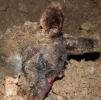
 A recent article about Nigel Franks, who tortured a female kangaroo and cruelly disposed of her joey, led to expressions of despair and horror about this young man's behaviour. A criminological link between cruelty to animals and cruelty to humans was drawn. I would like to suggest here that there may also be a political explanation in the normalisation of cruelty to animals by Australian authorities. Governments are demonstrating that they think it is okay to mistreat these sentient creatures, with the thinnest of justifications. At the end of this article I will suggest that this political attitude may forerun government violence against citizens in Australia.
A recent article about Nigel Franks, who tortured a female kangaroo and cruelly disposed of her joey, led to expressions of despair and horror about this young man's behaviour. A criminological link between cruelty to animals and cruelty to humans was drawn. I would like to suggest here that there may also be a political explanation in the normalisation of cruelty to animals by Australian authorities. Governments are demonstrating that they think it is okay to mistreat these sentient creatures, with the thinnest of justifications. At the end of this article I will suggest that this political attitude may forerun government violence against citizens in Australia.
Public shame for one, Status for another
One does not have to go so very far to see the example that Nigel Franks may have been following. Australian Government attitudes to kangaroos are appalling. They are violent, cruel, and use corrupt science (see "ACT Roo killings: Who profits? Behind the Earless Dragon mask". In mild contradiction to other anemic motherhood statements about 'biodiversity', their actions denigrate nature and objectify warm-blooded social animals by acting as if they have no family feelings and no rights to place and life itself.[1]
Government propaganda an inspiration to sadists?
Individuals who are gratuitously violent towards kangaroos quite possibly justify their actions as getting rid of 'pests' just like the ACT and other state governments. Kangaroos are not pests, of course, but they are demonised and objectified as such. "Theories" on kangaroo overpopulation ignore Australian Federal and State government policies to artificially stimulate human population growth on and around kangaroo territory and to run cattle and sheep in competition with kangaroos, even in the National Parks. Practice purportedly based on scientific theory on kangaroo overpopulation even ignores its own research. ACT government scientist, Don Fletcher, has been supportive of kangaroo culls on the basis of 'overpopulation', yet his own doctoral thesis, on my reading, completely undermines those attitudes. For instance, he wrote on page 237 of his study [2] that :
“The study did not provide evidence that high densities of kangaroos reduce groundcover to the levels where erosion can accelerate. Unmanaged kangaroo populations did not necessarily result in low levels of ground cover. Groundcover had a positive but not significant relationship to kangaroo density, with the highest cover at the wettest site where kangaroo density was highest. Weather has an important influence on groundcover.”
Translation, if needed: Fletcher found that very high densities of kangaroos, even in wet weather, have unimportant impact on grassland.
Fletcher also wrote that some of the populations he was studying were at the highest density recorded. They ranged between 4.5 and 5.1 kangaroos per hectare. The density in the studies below was expressed in square kilometers. To get density per hectare, divide by 100. Fletcher wrote:
“The kangaroo density estimates reported in Chapter 7 for the three study sites (mean eastern grey kangaroo densities of 450, 480 and 510 km2) are the highest kangaroo densities reported. For comparison, the maximum density of combined red kangaroos and western grey kangaroos in the Kinchega study was less than 56 km2 (Bayliss 1987) and the density of eastern grey kangaroos at Wallaby Creek (Southwell 1987b) was 41 to 50 km2. The next highest kangaroo density outside the vicinity of my study sites appears to be that of Coulson et al. (1999a) for eastern grey kangaroos at Yan Yean Reservoir near Melbourne, which was 220 km2.”
Does the emotional blunting affect our judiciary?
Was the magistrate who gave Nigel Franks a suspended sentence, disappointing many animal carers, influenced by the same attitudes? If the government leads with misinformation and violence, we can perhaps expect some of our judiciary to go along with this and some of our youth to act it out. Our laws and their enforcement also reflect this immoral and violent outlook, this unfair demand upon the environment that it give 100% of everything to our species alone (which then is siphoned upwards to the cruel and greedy elite who model these attitudes in the first place.) Australian State government performances with regard to carrying out their obligations under wildlife acts and environmental laws have been formally shown up as incompetent and mean by recent Auditor General reports. ("Tasmania, West Australia, Victoria - our wildlife are ignored by government," and "Damning Auditor General Report on Fauna protection for Victoria.".
Unfortunately demographic 'science' is full of potted attitudes like the clunky ones on which the ACT bases its 'wildlife management'. Whilst wildlife activists that compare the shooting squads to Nazi death squads may initially strike daily consumers of the Age, the Australian, ABC and commercial tv and radio as dramatic and implausible, the clunky swiss-cheese of economic and demographic 'science' is very similar. Hitler's message,[3] on the basis of publicly endorsed statistics which really only bulked up church and business attitudes were that Germans should breed up and jews, gypsies, homosexuals, insane and intellectually disabled people should be culled. The ACT's message, on the basis of publicly endorsed statistics which really only bulk up growth lobby and economic scorched earth attitudes (shared by most churches, although perhaps not always the Anglican Church) are that Australians and new Australians should breed up and kangaroos, dingos, and wildlife habitat should be culled because they are clogging up the economy or are in need of pain-relief due to being too many now that we have taken their habitat. If possible we should make money out of them first by turning them into dog food for one market or gourmet meat for another market, composed of those who like to think they are showing discriminating taste and economic intelligence. Completely overlooked in this case, by normally humane people who are usually kind to animals, is that these creatures that stand on two legs like us, look forward like us, and bring up their young together like us in close-knit social groups, and can meet our gaze, also have feelings and memories like us. They may not be human but that does not make them nothing.
Thinking of animals as stupid 'things' pervasive
People are so blind to the consequences of what we do to other creatures that it is, not only possible, but the rule, for a human being to move into a new suburb and not realise that land was cleared for that house and that, therefore, other creatures were displaced. Then, when one of those creatures tries to fight back, no connection is made. Reading this article ("Woman-says-kangaroo-stalked-her-then-attacked."), about a kangaroo who attacked a woman and her dog in a new housing estate, you have to wonder, are most humans really so much more intelligent than kangaroos when they seem to lack such a basic understanding of territoriality? A more satisfactory explanation is that our society teaches us to ignore what is obvious - kangaroos experience suffering and can react to persecution.
Kangaroos are horribly badly treated in Australia. They are harassed, hunted and tortured, culled in thousands. The area where the animal described in the article alluded to above attacked or defended itself is an area of suburban expansion. We cannot know what that animal saw happen to its family, but it is very likely that this was its clan territory (clans are subsidiary to 'mobs') and that it has seen terrible things. The only reason people are surprised at this kind of thing is because they have so objectified these animals that they simply do not give them credit for feelings. This animal would be a refugee in his own country. It is heartbreaking for anyone with compassion and open eyes. I have spent a fair amount of time with wild kangaroos and have never encountered an aggressive one, although quite a few frightened ones, including some over 7 feet tall. As an environmental sociologist who looks at population and land-use planning I can see how our system is all wrong and our culture cruel to animals and to people and that these two things are related.
Overpopulation - human or kangaroo?
The reader may notice my attention to the problem of human overpopulation in Australia. My attitude could be described as 'eco-malthusian' but I have never advocated the culling of human beings. There are so many ways to defuse our population bomb and I have written a short book on this issue that identifies keys to stabilising population that are inherent in populations of most or all species, including human ones. Unfortunately for the status quo of dodgy demographics, I became curious and did my own research. I will be bringing out a more comprehensive book but the basic theory has been published and is available. If you really want to know how populations work ecologically, you can purchase Sheila Newman, The Urge to Disperse and Sheila Newman, Demography Territory Law: The Rules of Animal and Human Populations at Amazon.com and Lulu.com among other retailers.[4]
Population and economic growth model and its consequences all unnecessary
The drive for economic and population growth in this country is counterintuitive to what most of us know to be true. For this reason constant propaganda is needed to obscure its adverse consequences and to make us ignore the evidence of our own eyes and hearts. We have every reason to think for ourselves in this case, instead of listening to our corrupt and emotionally blunted official leadership.
The financial and development industry reliance on population growth to fund expansion is no longer economically viable even in the short-term. It is contributing to the rise in the cost of water, power, food and housing. These high costs make manufacturing in this country extremely uncompetitive against other countries where the cost of land is much less. These high costs have contributed to the destruction of our manufacturing industry and our import/export imbalance. These costs are within the control of the government through the reduction of costly economic activity which is based on the creation of debt for the profit of a few focused beneficiaries in the growth lobby.
Employment is going to start to dry up and this is immediately very frightening if you are paying rent, mortgages or need to drive a car to get to food outlets. Once again, the government can mediate and mitigate the impact of employment decline. There is actually a positive way to deal with this. That is to halve the working day, share the work, and to reduce the costs of living which are in Australia’s control. Slowing down our economy by stopping expansion will save fuel, save lives, and save time for quality of life and local community strengthening. (I have written more extensively about how to cut down our impact per capita by limiting production and increasing local self-government, notably in the first chapter of Sheila Newman, Ed.The Final Energy Crisis,, 2nd Edition, Pluto Books, 2008.)
Unfortunately, instead of a democratic review of our resources and self-government strengths to meet the coming resource crisis, we have seen a rise in cruelty to other species and the objectification of citizens into customer-subjects to King Economy. Just as criminologists draw a lesson in psychology between Geoffrey Dalmar's and Ted Bundy's cruelty to domestic animals and their 'progress' to cruelty to humans, we should draw a warning from the increasingly blatant use of propaganda to justify cruel annihilation of native animals to facilitate the activities of an elitist growth lobby. As propaganda paves the way for developers to cover natural habitat and agricultural land with new suburbs for private profit, we may see that cruelty to humans follows the collapse of democracy in population policy and land-use planning in Australian states.
Are there any exceptions to the rule that destruction of local environments always accompanies destruction of democracy, equality and fraternity? Is the pain we know we cause around us a sign we should attend to for our own good?
NOTES
[1] By talking about warm-blooded species, I am putting roos in a similar grouping to humans, but that does not mean that I think that 'cold-blooded' species don't deserve our respect.
[2] Don Fletcher, “Population Dynamics of Eastern Grey Kangaroos in Temperate Grasslands,” was on line as a pdf, which is the form I downloaded it as. Now apparently only available from University of Canberra Library, reference: https://nla.gov.au/anbd.bib-an42269526. A book by the same title and author has also been published. For more detailed analysis of the ACT situation and the 'science' of the culls, see (see "ACT Roo killings: Who profits? Behind the Earless Dragon mask".
[3] I have been criticized for wielding the Nazi example as if it were the only example of depraved official behaviour in relatively recent history. Unfortunately it isn't and the wars instigated in the Middle East by western powers are a contemporary example of brutality on the basis of proven false propaganda (weapons of mass destruction etc.) Almost anywhere strategic to resources or marketable land sees dispossession and brutality on a state and corporate organised basis. See Naomi Klein's Shock Doctrine for a team-research effort in exposing the motives and examples of this.
[4] The theory of the book is written first from a sociological angle and then from a biological angle. I found that some sociologists had problems understanding the biology and some biologists had problems understanding the sociology, despite positive peer reviewing from biologist, Prof David Pimentel of Cornel University and Dr Joseph Smith, who is a doctor of environmental law with knowledge of inheritance law. I will therefore be bringing out a longer book, with a generalist introduction and integrating the territorial allocation part of the theory with human inheritance laws and land-use planning and historical and actual examples, in the next few months hopefully.
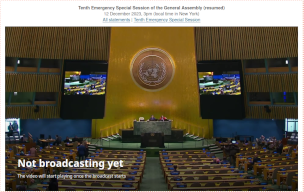 (Update, 6:24am Wed 13 Dec: The meeting won't be starting for another 36 minutes, that is, 7am AEDT in Victoria and NSW and 8am AEST in Brisbane.Apologies, for my miscalculation.) Tomorrow at 3pm New York Time or, in Australia, at 6pm AEDT in Victoria and NSW or at 5pm AEST in Queensland, the United Nations General Assembly will commence a meeting to discuss and vote on a motion calling for a c
(Update, 6:24am Wed 13 Dec: The meeting won't be starting for another 36 minutes, that is, 7am AEDT in Victoria and NSW and 8am AEST in Brisbane.Apologies, for my miscalculation.) Tomorrow at 3pm New York Time or, in Australia, at 6pm AEDT in Victoria and NSW or at 5pm AEST in Queensland, the United Nations General Assembly will commence a meeting to discuss and vote on a motion calling for a c
 "The horror and trauma children are facing in Gaza right now is indescribable and unconscionable - suffering and killing must stop now." (Plan International Australia, 6 December 2023)
"The horror and trauma children are facing in Gaza right now is indescribable and unconscionable - suffering and killing must stop now." (Plan International Australia, 6 December 2023) The following article has been adapted from a double-sided A4 leaflet which was handed out at a protest for Palestine, which commenced from Queen's Park in the Brisbane CBD at 2pm on Sunday 26 November. The 344K PDF file is attached
The following article has been adapted from a double-sided A4 leaflet which was handed out at a protest for Palestine, which commenced from Queen's Park in the Brisbane CBD at 2pm on Sunday 26 November. The 344K PDF file is attached  Palestine-born and trained doctor who, at 12 yrs old, was shot in the neck by a sniper on his way home from school, speaks of then and now at a pro-Palestinian rally in Brisbane on 19 November 2023. The rally was very large and a later march took up several blocks, where numerous groups of supporters lined the footpaths. People are aghast, shocked, disturbed, at the failure by world leaders to heed the suffering and extinction of so many people in Gaza, in full view, 24/7.
Palestine-born and trained doctor who, at 12 yrs old, was shot in the neck by a sniper on his way home from school, speaks of then and now at a pro-Palestinian rally in Brisbane on 19 November 2023. The rally was very large and a later march took up several blocks, where numerous groups of supporters lined the footpaths. People are aghast, shocked, disturbed, at the failure by world leaders to heed the suffering and extinction of so many people in Gaza, in full view, 24/7.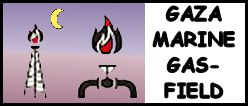 With the exception of some members of the cross-bench, mostly Greens, both Australia's houses of Parliament support Israel's war against more than 2 million Palestinians (who are also mostly Israeli citizens) crowded into the Gaza strip.
With the exception of some members of the cross-bench, mostly Greens, both Australia's houses of Parliament support Israel's war against more than 2 million Palestinians (who are also mostly Israeli citizens) crowded into the Gaza strip. "The West Bank already started to be destroyed
"The West Bank already started to be destroyed This video opens with former President Poreshenko
This video opens with former President Poreshenko  Our city was alight last night as was the countryside
Our city was alight last night as was the countryside
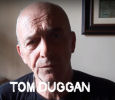 Video inside: Tom Duggan lives in Damascus, Syria. This week he covered the Jaishal Islam (Saudi supported) terrorist group leaving Douma, Syria. He reports, "We were expecting between 3000 and 8000 hostages to be released. We got less than 100. Where did they all go? They had been held for between four and six years. Jaishal Islam submitted the names of these people, their ID numbers, and the Syrian Government, in good faith, accepted the release of the terrorists in exchange for the hostages they claimed to have. This is a huge example of genocide, but the UN has not even acknowledged it." Up to 8000 Syrians slaughtered or starved by Jaishal Islam, which the Syrian Government has been fighting, and, meanwhile the United states posing as an 'exceptional' state, is threatening to attack Syria, which will draw Russia and probably China into war, on the basis of a completely unproven allegation that the Syrian Government used 'chemical weapons' against its own people. Duggan knows there is a high risk of Damascus being attacked by the rogue 'exceptional' US state, but he has decided to remain there.
Video inside: Tom Duggan lives in Damascus, Syria. This week he covered the Jaishal Islam (Saudi supported) terrorist group leaving Douma, Syria. He reports, "We were expecting between 3000 and 8000 hostages to be released. We got less than 100. Where did they all go? They had been held for between four and six years. Jaishal Islam submitted the names of these people, their ID numbers, and the Syrian Government, in good faith, accepted the release of the terrorists in exchange for the hostages they claimed to have. This is a huge example of genocide, but the UN has not even acknowledged it." Up to 8000 Syrians slaughtered or starved by Jaishal Islam, which the Syrian Government has been fighting, and, meanwhile the United states posing as an 'exceptional' state, is threatening to attack Syria, which will draw Russia and probably China into war, on the basis of a completely unproven allegation that the Syrian Government used 'chemical weapons' against its own people. Duggan knows there is a high risk of Damascus being attacked by the rogue 'exceptional' US state, but he has decided to remain there.
 The flooding of Europe by countless waves of refugees may be the result of the “strategic depopulation” of Syria carried out by opponents of the country’s government, WikiLeaks founder Julian Assange has suggested.
The flooding of Europe by countless waves of refugees may be the result of the “strategic depopulation” of Syria carried out by opponents of the country’s government, WikiLeaks founder Julian Assange has suggested. Article originally published at
Article originally published at 
 The Syrian Network for Human Rights and Irin both purport to be disinterested information sources on conflict in Syria and boast that the UN relies on them as its primary source. But they are not disinterested. There is abundant evidence that they promote the 'rebel' or terrorist side of the conflict and that their funding is from organisations and countries aligned with US-NATO support for aggression in the region. They are in fact promoting war propaganda against Syria and it is amazing that people one would expect to be more discerning, take this on face value. In this article I try to find out why Tim Costello, of World Vision, came to accuse the Syrian government of killing more people than ISIS without taking into account that these deeds were actions by a national army defending its people from multiple assaults by violent gangs, including ISIS, many of them supported by US-NATO funding and arms.
The Syrian Network for Human Rights and Irin both purport to be disinterested information sources on conflict in Syria and boast that the UN relies on them as its primary source. But they are not disinterested. There is abundant evidence that they promote the 'rebel' or terrorist side of the conflict and that their funding is from organisations and countries aligned with US-NATO support for aggression in the region. They are in fact promoting war propaganda against Syria and it is amazing that people one would expect to be more discerning, take this on face value. In this article I try to find out why Tim Costello, of World Vision, came to accuse the Syrian government of killing more people than ISIS without taking into account that these deeds were actions by a national army defending its people from multiple assaults by violent gangs, including ISIS, many of them supported by US-NATO funding and arms. QandA, the very popular Australian TV program on public television, on 14 September 2015, dealt with the question of bombing ISIS in Syria without the Syrian government’s permission, supposedly at the invitation of Syria’s neighbour Iraq asking for help. (
QandA, the very popular Australian TV program on public television, on 14 September 2015, dealt with the question of bombing ISIS in Syria without the Syrian government’s permission, supposedly at the invitation of Syria’s neighbour Iraq asking for help. ( This is a letter to Malcolm Turnbull, Communications Minister, from Susan Dirgham of
This is a letter to Malcolm Turnbull, Communications Minister, from Susan Dirgham of  Boatloads and planeloads of refugees are fleeing the globalist tradewars that are destroying their countries and the European Union wants Europe to accept refugee quotas. Everyone is worried about how Western countries are going to deal with refugees. But why doesn't anyone mention that all these wars the West is involved in are producing these exoduses?
Boatloads and planeloads of refugees are fleeing the globalist tradewars that are destroying their countries and the European Union wants Europe to accept refugee quotas. Everyone is worried about how Western countries are going to deal with refugees. But why doesn't anyone mention that all these wars the West is involved in are producing these exoduses? "Migrant quotas are out of the question" in Europe, François Hollande has stated. After the French Prime Minister, Manuel Valls, it was François Holland's turn to voice his opposition to the European Commission's proposition of imposing migrant quotas on the member states of the European Union.
"Migrant quotas are out of the question" in Europe, François Hollande has stated. After the French Prime Minister, Manuel Valls, it was François Holland's turn to voice his opposition to the European Commission's proposition of imposing migrant quotas on the member states of the European Union.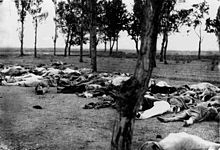

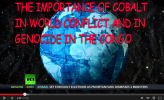



 A recent
A recent  Too often we fail to see the connection between the ecological destruction and cultural genocide of so-called "developing" nations and the lax immigration policies of those nations like Canada which play host to both the victims and the perpetrators of the tragedy. A look at the relationship between Sarawak's plight and the inflation of real estate values in Ontario, Canada and elsewhere should give us a better understanding of how plunder abroad promotes in-migration here. Canada, by offering an outlet to dirty money and the people who profit from it, must be seen as a willing accomplice and silent partner to a vast money-laundering operation.
Too often we fail to see the connection between the ecological destruction and cultural genocide of so-called "developing" nations and the lax immigration policies of those nations like Canada which play host to both the victims and the perpetrators of the tragedy. A look at the relationship between Sarawak's plight and the inflation of real estate values in Ontario, Canada and elsewhere should give us a better understanding of how plunder abroad promotes in-migration here. Canada, by offering an outlet to dirty money and the people who profit from it, must be seen as a willing accomplice and silent partner to a vast money-laundering operation.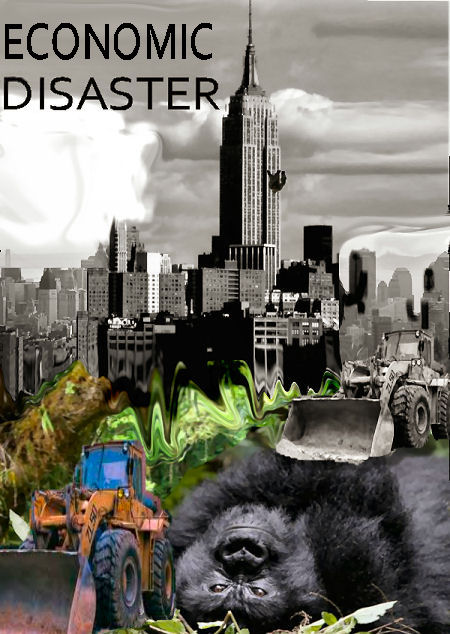
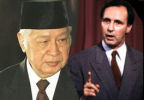 This article identifies a tendency internationally to desensitize the public to the mass-murder by Western-supported governments of whole peoples whom they find inconvenient. Australia has a history of cultivating 'wilful blindness' to these events in our neighborhood, under the leadership of powerful government figures. Geoffrey Taylor here draws our attention to an example of such a complex attitude in an interview with Paul Keating last year. [This article started out as a response to
This article identifies a tendency internationally to desensitize the public to the mass-murder by Western-supported governments of whole peoples whom they find inconvenient. Australia has a history of cultivating 'wilful blindness' to these events in our neighborhood, under the leadership of powerful government figures. Geoffrey Taylor here draws our attention to an example of such a complex attitude in an interview with Paul Keating last year. [This article started out as a response to 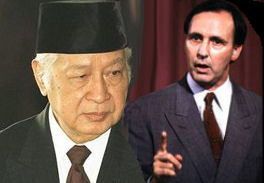
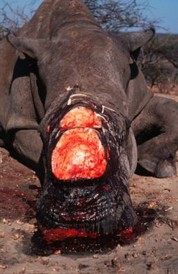
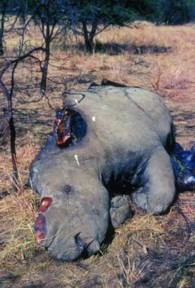




Recent comments